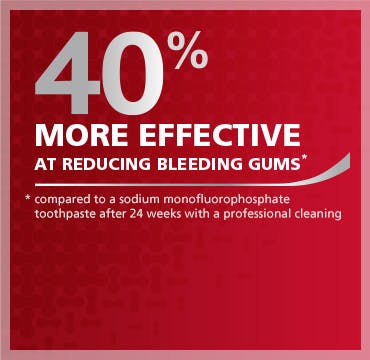Brushing your teeth regularly is an essential part of maintaining good oral hygiene. Brushing helps remove plaque, the sticky film made up of bacteria that forms on the teeth and along the gum line. Not brushing your teeth properly allows for a buildup of plaque, which can lead to a number of dental problems including cavities and red, swollen, bleeding gums—the early symptoms of gingivitis.

How often should you brush your teeth?
According to the American Dental Association, you should brush your teeth for 2 minutes, twice a day. For example, you can brush your teeth once in the morning and once at night before bed—ideally using a fluoride toothpaste like parodontaxTM.

Is too much brushing a bad thing?
While brushing your teeth regularly is a good habit (twice a day per the ADA’s recommendation), over-brushing, along with aggressive brushing, can lead to receding gums. Talk to your dentist about building a proper daily oral health routine.
Does brushing your teeth have an impact on your overall health?
It is not yet known if gum problems cause other health problems, but people with gum disease have been associated with a high risk of other health issues like cardiovascular disease, diabetes, and others according to a study by Harvard Medical School.
Regular brushing helps prevent gum disease, that’s why it’s important to practice proper brushing and flossing techniques as part of your daily oral care routine—it’s vital to your oral health and contributes to your overall well-being.





